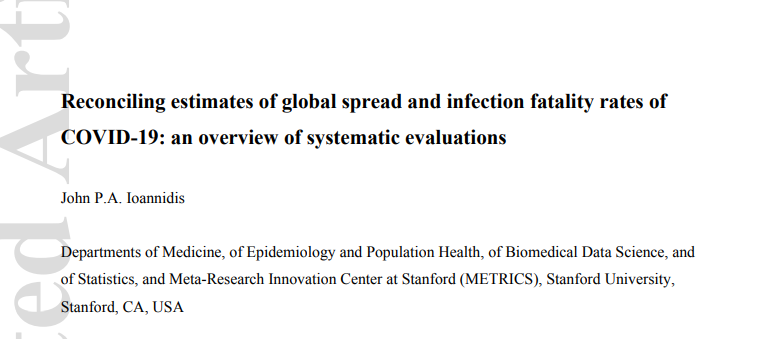
One of the weird things about the pandemic is watching people talk about uncertainty but refuse to admit that it usually runs in both directions
"All of the COVID-19 cases might be false positives!"
Well, unlikely, but perhaps. It was just as reasonable to say that NONE of the cases were false positives, or that there were many more cases than we could observe
Well, unlikely, but perhaps. It was just as reasonable to say that NONE of the cases were false positives, or that there were many more cases than we could observe
"There are fewer COVID-19 deaths than we've recorded"
Again, possible. Unlikely, but possible. But people who say this rarely acknowledge that it is just as - if not more - likely that there have been MORE deaths than recorded
Again, possible. Unlikely, but possible. But people who say this rarely acknowledge that it is just as - if not more - likely that there have been MORE deaths than recorded
"Lockdowns may be worse than the disease!"
Possibly true. Equally, it's entirely possible that lockdowns save lives, and yet it's rarely framed that way in the discussions about uncertainty
I wonder why 🤔
Possibly true. Equally, it's entirely possible that lockdowns save lives, and yet it's rarely framed that way in the discussions about uncertainty
I wonder why 🤔
There are many uncertainties. But if someone only ever expresses uncertainty in a single direction, it's hard to believe that they are simply concerned about what we don't know
• • •
Missing some Tweet in this thread? You can try to
force a refresh





